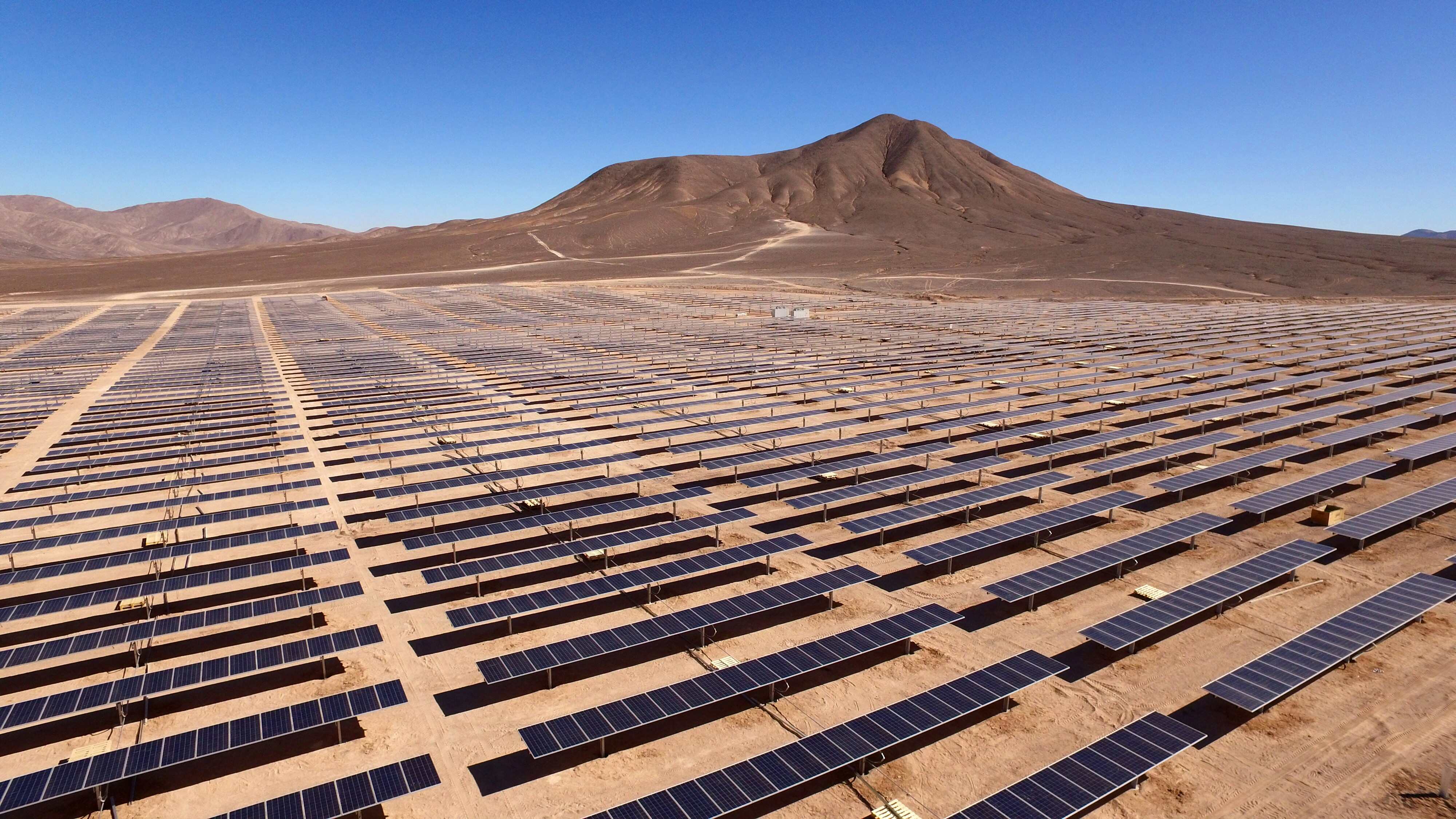Given the growing global concern for climate change and the planet's future, it is no surprise that there is a pressing demand for talent in the renewable energy industry. According to the International Renewable Energy Agency (IRENA), the sector could potentially see a workforce of 43 million by 2050 to meet climate targets. Businesses must, therefore, develop a clear and effective talent strategy to attract skilled professionals to renewable energy jobs.
A crucial part of this talent strategy involves understanding the vital skills that will drive the sector forward and facilitate a transition to a greener, more sustainable future. This guide will explore five key skills that are increasingly vital for professionals in the sector to ensure that renewable energy projects achieve maximum performance and meet critical objectives.
1. Project Management
Effective project management is crucial for the successful execution of renewable energy projects. It involves applying a structured approach to managing tasks and resources and ensuring that projects are delivered on time, within budget, and to the required quality standards.
Talent with project management skills enables clean energy projects to have a structured approach. This helps mitigate risks, manage stakeholders, and maintain clear communication channels, which are vital for the seamless execution of a project.
Here are the key skills needed for successful project management:
- Organisation - The success of renewable energy projects starts with meticulous planning, setting clear timelines and objectives, and identifying necessary resources, from people to materials.
- Leadership - Guiding the team towards the project’s targets, inspiring confidence, and resolving conflicts.
- Risk Management - Anticipating potential issues, such as environmental concerns or technological conflicts, and creating strategies to mitigate these risks.
- Budgeting - This is vital for keeping the project within financial limits. Assessing expenses and adjusting plans to prevent overspending are essential for effective project management.
- Self-Learning - Learning from each project is important for continuous self-improvement. Reviewing success and areas for development helps refine future project management practices.
Renewable energy projects can be highly innovative and groundbreaking but also very complex to execute. Therefore, they need talent with high project management skills to ensure completion time frames are met and that these projects have the maximum effect in the fight against climate change.
2. A STEM Background
In the renewable energy industry, professionals with backgrounds in science, technology, engineering, and mathematics (STEM) are becoming increasingly sought after in renewable energy jobs to drive innovation and the advancement of clean energy. A STEM education equips individuals with technical knowledge, problem-solving skills, and critical thinking, which are all crucial for tackling the complex challenges of developing sustainable energy solutions.
The drive to encourage students to pursue STEM degrees and courses and enter the renewable energy market will support businesses in ensuring a robust talent pipeline, which will contribute to closing the talent gaps we discussed earlier. While every role within renewables requires a STEM background, having expertise in these disciplines significantly enhances an individual's capability to excel in technical positions.
For instance, solar engineers, wind turbine service technicians, and chemical engineers rely heavily on STEM skills to develop and implement cutting-edge technologies, increase efficiency, and optimise systems, which in turn ensure the success of renewable energy projects.
One significant example of a business attempting to increase the number of young people taking up STEM subjects and renewable energy careers is Drax, the UK's largest renewable energy company. By collaborating with schools and colleges, offering public tours, and promoting STEM education, Drax is boosting key skills and creating a future talent pool for the industry.
Increasing such collaborations with educational institutions is an important talent strategy for ensuring continued access to skilled professionals capable of driving the renewable energy industry forward.

3. Social Awareness
Next on our list of renewable energy jobs is social awareness. Social awareness is a crucial skill that impacts the effectiveness and sustainability of renewable energy projects. Clean energy's core mission is to improve how we can consume the earth's resources, preserving our planet for future generations. As a member of the workforce, having a strong understanding of the part an individual plays and the difference their roles make is vital.
Social awareness ensures that the motivation to succeed stems from a deep understanding of the sector’s goals. This entails having knowledge and strategies in the following areas:
- Understanding the impact of energy generation on the planet
- Promoting social acceptance and raising awareness of renewable energy’s benefits.
- Keeping up-to-date on government targets and decisions made at key global climate change meets such as COP.
- Staying informed on practices in sustainability and reducing carbon footprints.
- Able to dispel misconceptions about renewable energy, such as unreliability or visual impact.
- Able to communicate openly with local communities throughout the development process to address concerns and educate.
Demonstrating this skill to employers highlights a professional's dedication not only to their role but to the entire industry. It also ensures that renewable energy projects are successful and aligned with the expectations of local and global communities.
4. Artificial Intelligence (AI)
AI skills are becoming increasingly demanded in the renewable energy industry. With its advanced data processing capabilities and predictive analytics, AI offers solutions that were once considered difficult to achieve. Forecasts indicate that the global AI market for clean energy could surpass $75.82 billion by 2030, highlighting the industry’s growing reliance on this technology and the need for professionals in renewable energy jobs to have these skills.
Here are some of the key ways that AI is transforming renewable energy production:
- Demand Forecasting and Grid Stability - AI significantly enhances predictions for capacity levels from variable renewable sources, such as solar and wind, by providing real-time data. This advancement helps maintain grid stability, ensuring a reliable power supply. Moreover, improved forecasting facilitated by AI reduces operational costs and minimises power curtailment, making the renewable energy industry more efficient and cost-effective.
- Operations and Maintenance - AI algorithms enhance reliability and efficiency by detecting mechanical failures in real-time. Additionally, AI-driven software predicts machine health and recommends actions to improve overall efficiency, ensuring more effective operations.
- Weather and Energy Predictions - AI leverages self-learning weather models, historical data, and real-time measurements for accurate energy forecasting. For example, this integration improves solar energy prediction accuracy by 30% while also predicting energy needs during significant events and considering geographical factors.
- Risk Management - AI plays a crucial role in risk management by anticipating and mitigating system malfunctions, preventing chain reactions and grid instability. Automated AI responses enable swift countermeasures, ensuring the maintenance of system stability during disruptions.
- Energy Management and Battery Storage - AI optimises battery storage and energy management by balancing supply and demand, minimising the impacts of peak demand. It predicts and manages energy storage decisions based on various factors, such as demand and prices, ensuring efficient resource use.
5. Policy and Regulatory Knowledge
Last but not least on our list of desired skills for renewable energy jobs is policy and regulatory knowledge. Professionals in the clean energy sectors rely heavily on their understanding of policies and regulations. They must be well-versed in local and international energy policies, incentives, and compliance standards. This knowledge is vital for ensuring that projects align with regulatory requirements and anticipate how policy decisions could impact the future of renewable energy development.
Policies and regulations in the renewable energy industry include:
- Energy Pricing - Policies shape how clean energy is bought, sold, and priced in energy markets.
- Environmental and Conservation - Regulations aim to balance the drive for renewable energy development with wildlife conservation, environmental protection, and the presentation of protected sites.
- Technology-Specific Regulations - Different renewable energy technologies in various sectors, such as wind, solar, and biomass, may have specific safety and technical regulations.
- International Climate Commitments - Policies in the sector are often linked to international agreements and climate change reduction efforts.
- Project Permits - There are regulations that govern the approval process and siting requirements for renewable energy projects such as solar and wind farms. These regulations include land use considerations and environmental impact assessments.
Regulations vary greatly across countries and regions, aiming to establish frameworks that support the shift to sustainable energy sources while balancing technical, economic, and environmental factors. Understanding these policies is vital for professionals in the sector to navigate compliance requirements, protect the local environment, and ensure projects align with local and global climate change goals.
The Final Word on Five Desired Skills for Renewable Energy Jobs
Due to global concerns about climate change and sustainability, the renewable energy industry faces an increasing demand for skilled professionals. Projections indicate that 43 million renewable energy jobs will be required by 2050 to meet climate targets, so businesses need to prioritise the development of essential skills. By equipping professionals with these skills, the sector can effectively tackle challenges and capitalise on opportunities, advancing towards sustainable energy solutions and environmental preservation.
This strategic focus on skill development not only enhances project outcomes but also supports broader environmental and economic objectives. Professionals proficient in these areas will be crucial in shaping the future of renewable energy, driving innovation, and ensuring sector resilience amidst global changes. Investing in talent and developing expertise across these key domains will accelerate progress towards a greener and sustainable energy future, benefiting society and the environment alike.
Global Renewable Energy Recruitment Services
Has our guide highlighted any talent gaps within your business, and do you need the support of an expert renewable energy recruitment agency? Since 2001, we have operated by four guiding principles: ambition, experience, global reach, and honesty. These principles enable us to deliver exceptional hiring solutions for businesses worldwide. Our primary goal is to connect you with innovative and driven talent to fill your current renewable energy job vacancies.
For more details, visit our dedicated renewable energy page or contact the team today.




